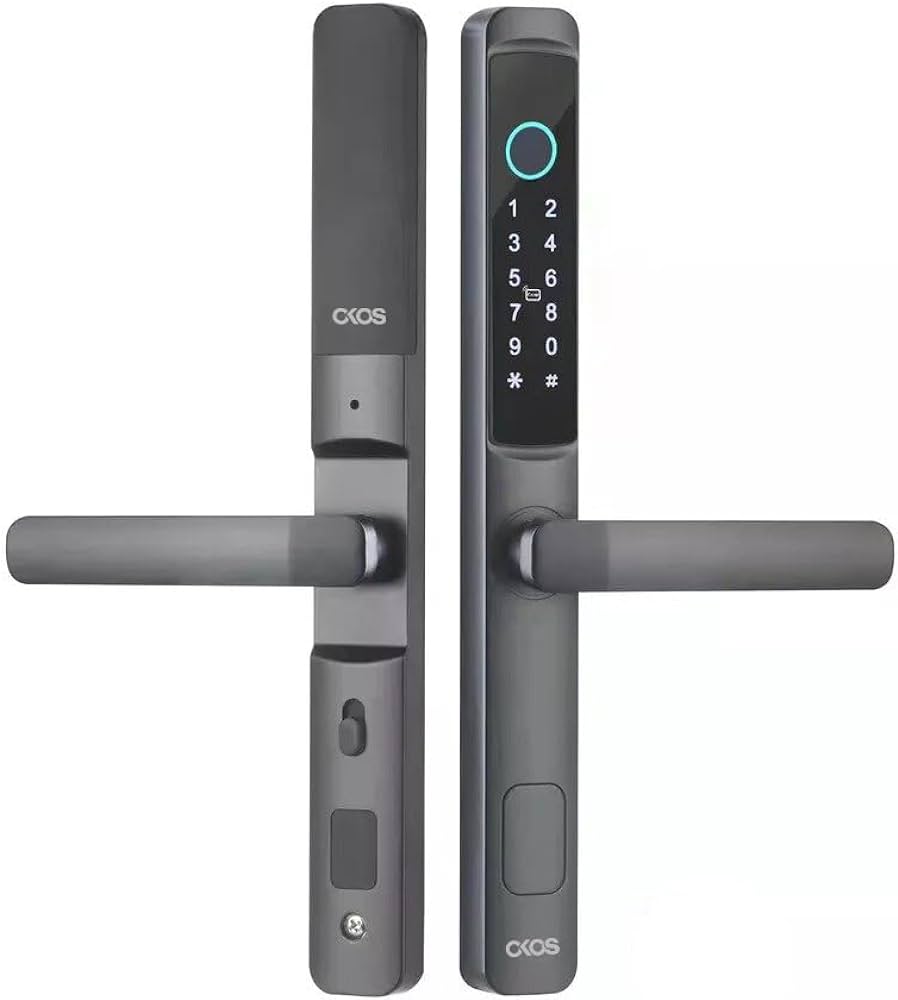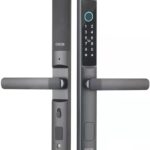Unlocking the potential of smart locks with Wi-Fi is akin to having a key that opens doors to a realm of possibilities.
But do smart locks truly need Wi-Fi to function efficiently?
As you stand at the digital doorway of this debate, pondering the importance of connectivity and the convenience it brings, you might be surprised by the nuances that lie beyond the binary answer.
Importance of Wi-Fi Connectivity
- Having a stable Wi-Fi connection is crucial for the optimal functioning of smart locks, enabling seamless remote access and control over your home’s security. When it comes to security concerns, a reliable Wi-Fi connection ensures that your smart lock communicates securely with your smartphone or other devices. Encryption protocols used in Wi-Fi connections help prevent unauthorized access to your smart lock system, enhancing the overall security of your home.
- In terms of battery life, Wi-Fi connectivity plays a significant role. Smart locks rely on a power source to operate, and a stable Wi-Fi connection helps manage the power consumption efficiently. By maintaining a constant connection, the smart lock can enter power-saving modes when not in use, thus extending the battery life. In contrast, an unstable Wi-Fi connection may result in frequent disconnections and reconnections, causing the smart lock to consume more power to establish and maintain the link, ultimately draining the battery faster. Therefore, a steady Wi-Fi connection is essential for preserving the battery life of your smart lock system.

Alternative Connectivity Options
- For optimal smart lock functionality, exploring alternative connectivity options beyond Wi-Fi is crucial in enhancing flexibility and reliability in home security systems. One such alternative connectivity option is Bluetooth compatibility. Bluetooth allows for short-range communication between devices, enabling your smart lock to connect to your smartphone or other Bluetooth-enabled devices for remote access and control. While Bluetooth may have limitations in range compared to Wi-Fi, it can be a secure and energy-efficient option for smart locks.
- Another alternative connectivity option is a cellular connection. Cellular connectivity provides a more reliable connection compared to Wi-Fi, as it isn’t dependent on your home network’s stability. With a cellular connection, your smart lock can communicate with your smartphone or a centralized system through cellular data networks, ensuring that you can access and manage your smart lock remotely even if your Wi-Fi is down.
Remote Access and Control
- Exploring remote access and control features is essential for maximizing the functionality and security of smart locks in modern home automation systems. When considering remote access, it’s crucial to evaluate the security risks associated with connecting your smart lock to the internet. While remote access allows you to lock and unlock your door from anywhere, it also opens up the potential for hackers to infiltrate your system if proper security measures aren’t in place.
- Additionally, remote access can impact the battery life of your smart lock. Constantly communicating with your lock over Wi-Fi or other network connections can drain the battery faster than offline operations. It’s important to choose a smart lock that balances the convenience of remote access with efficient power management to ensure your lock remains operational when you need it most. Therefore, when setting up remote access for your smart lock, prioritize security protocols to mitigate potential risks and consider the impact on battery life to maintain reliable functionality.
Integration With Smart Home Systems
- Integrating smart locks with your existing smart home system enhances overall security and convenience. When considering integration, compatibility issues between your smart lock and smart home hub must be addressed. Ensuring that your smart lock is compatible with popular smart home systems like Amazon Alexa, Google Assistant, or Apple HomeKit is crucial for seamless integration.
- Voice control is a key feature that can be leveraged when smart locks are integrated with smart home systems. By connecting your smart lock to a voice assistant, you can conveniently lock or unlock your door using voice commands. This hands-free operation adds an extra layer of convenience to your smart home setup.
- However, compatibility issues can arise when trying to integrate different brands or types of smart home devices. It’s essential to check for compatibility and ensure that all devices can communicate effectively to avoid any operational hiccups. Prioritizing compatibility and ensuring seamless integration will optimize the functionality of your smart lock within your smart home system.
Considerations for Offline Functionality
- Have you considered how your smart lock will function offline in case of connectivity issues? When evaluating smart locks, it’s crucial to assess their offline functionality to ensure that you can still access your home even without an internet connection. One key aspect to focus on is the battery life of the smart lock. In offline mode, the lock relies solely on its internal power source, so a longer battery life is essential to prevent instances where you could be locked out due to a dead battery.
- Moreover, security concerns should be carefully addressed when examining offline functionality. Without a connection to a central server, the smart lock should maintain robust encryption protocols to safeguard against unauthorized access attempts. Additionally, the lock should have mechanisms in place to detect and prevent tampering while operating offline.
Conclusion
In conclusion, while Wi-Fi connectivity isn’t essential for smart locks, it offers numerous advantages such as remote access, integration with smart home systems, and convenient control options. However, alternative connectivity options exist for those who prefer offline functionality. Ultimately, the decision to use Wi-Fi with smart locks depends on individual preferences and needs, but it certainly enhances the overall functionality and convenience of these smart devices.





Leave a Reply